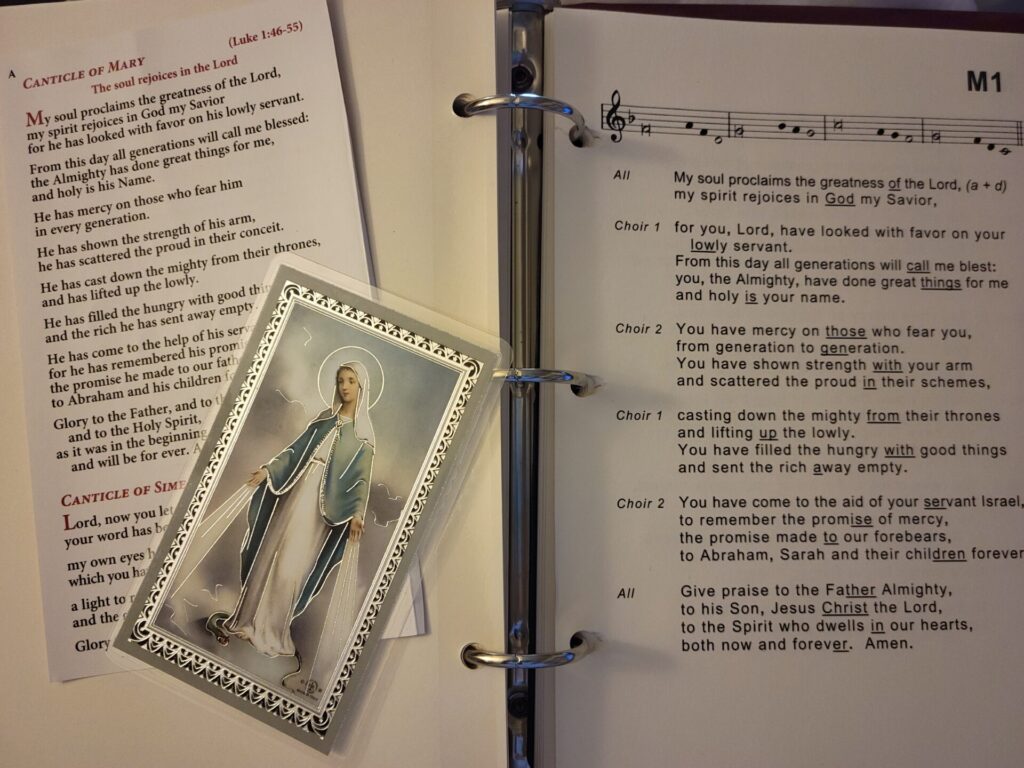Each day, the Magnificat is prayed in the celebration of Evening Prayer. After Mary’s “yes” to being the Mother of Jesus at the Annunciation, she went to visit her cousin Elizabeth. It is then that she spoke the Magnificat, otherwise known as the Canticle of Mary. Tradition tells us that the reason the Magnificat is prayed during the evening is because both the Annunciation and the Visitation took place in the evening.
We have many reasons to give consideration and prayerful reflection to the Magnificat. In the Magnificat, Mary expresses all we could ever say in prayer. In the first section, Mary expresses her gratitude to God. She then goes on to praise God for his power, His holiness, and His mercy. In the third part, she compares how differently God deals with the proud and the humble. Finally, she recalls all of God’s promises and how they are fulfilled in the Messiah.
It is good to take time in the evening to pray the Magnificat. When we are tired and weary from our day, our minds are ready for contemplation. It is then that the words of Mary can soak into our souls, kindle our devotion, and inspire us to lead lives of virtue.
“My soul magnifies the Lord, and my spirit rejoices in God my Savior, for he has looked with favor on the lowly state of his servant. Surely from now on all generations will call me blessed, for the Mighty One has done great things for me, and holy is his name; indeed, his mercy is for those who fear him from generation to generation. He has shown strength with his arm; he has scattered the proud in the imagination of their hearts. He has brought down the powerful from their thrones and lifted up the lowly; he has filled the hungry with good things and sent the rich away empty. He has come to the aid of his child Israel, in remembrance of his mercy, according to the promise he made to our ancestors, to Abraham and to his descendants forever”
(Luke 1:46-55).

